Opico to sell FarmDroid drilling and weeding robot
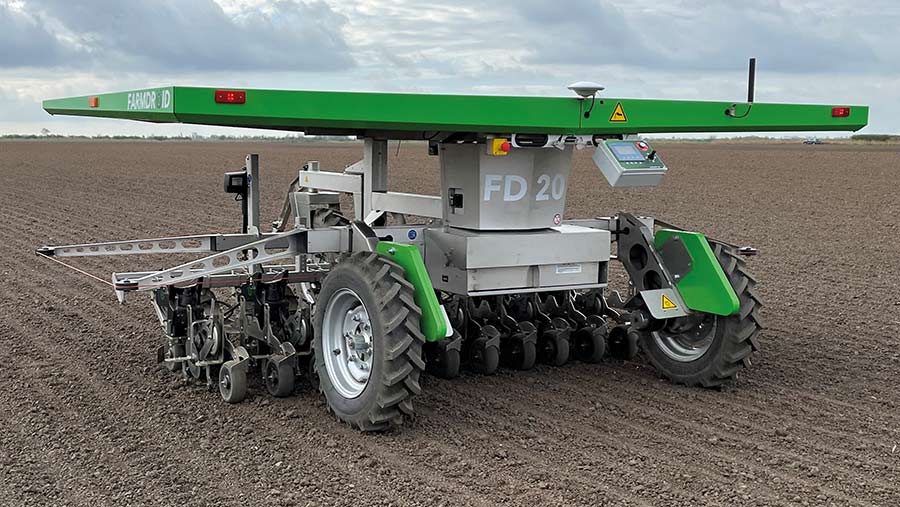 © MAG/Matilda Bovingdon
© MAG/Matilda Bovingdon Opico has branched into uncharted waters by taking on the distribution of Danish-made autonomous tool carriers.
Carbon neutral and powered by sunshine alone, the so-called FarmDroid is the brainchild of brothers Kristian and Jens Warming.
The pair manufactured their first model in 2018 with help and funding from Danish robotics and engineering pioneer Esben Østergaard.
A world first according to its makers, the machines now operate in 18 countries carrying out both drilling and weeding, with more than 250 sold to date.
Of these, six work on farms in the UK, predominantly in crops such as onions and sugar beet.
See also: Will battery-powered farm machinery help meet net-zero targets?
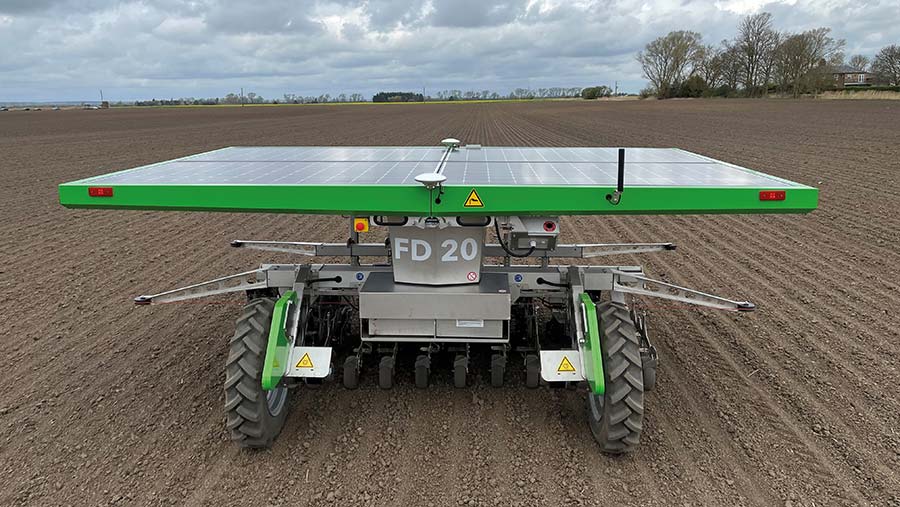
© MAG/Matilda Bovingdon
How does it work?
Mounted atop the machine’s steel frame are four solar panels which charge two lithium-ion batteries.
Performance depends on a number of variable factors, such as sunlight conditions and the speed at which seeding or weeding takes place.
On a full charge, it can operate continuously for 24 hours, stopping only when the batteries are flat, at which point it will apply the brakes and wait for the sun to rise.
On cloudy days where solar charging abilities are hampered, an additional power bank can be charged up at home and used to run the robot for 8-12 hours.
The FarmDroid works continuously at a very sedate pace, covering up to 900m/hour (0.9kph) – the equivalent of about 6ha/day.
Operating without a camera system, the machine relies on guidance via an RTK correction signal.
Programming the corner points of the field, as well as any obstacles, allows it to create a geofence and a seeding pattern, so that it knows exactly where to place each seed.
This allows it to carry out inter-row weeding to within 5mm of a plant, and within 20mm for intra-row weeding.
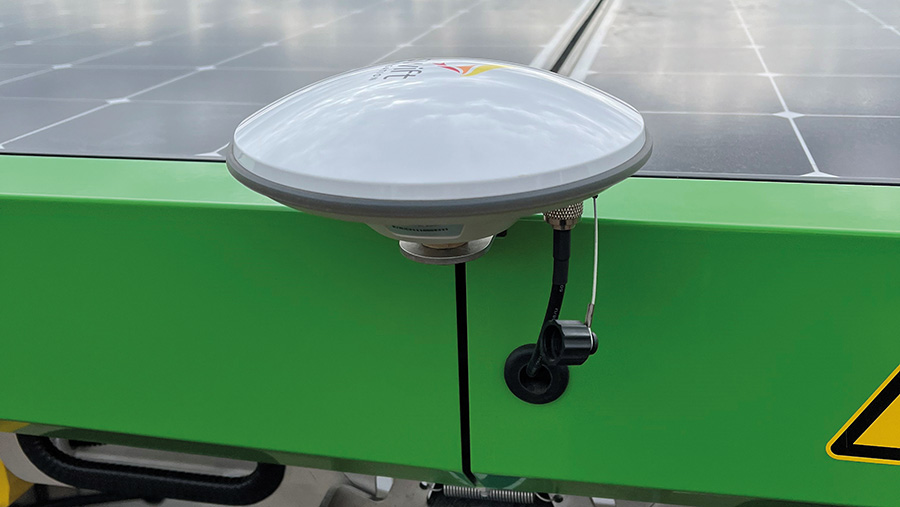
© MAG/Matilda Bovingdon
The seeding mechanism consists of two roller discs and a furrow opener which sit at the front of each of the individual units, creating a small trough for the seeds to be placed into.
The seeds travel from the hoppers into the electrical meter and through a valve which sits 2cm above the ground.
From the custom seeding map, the robot knows exactly where to open and close the valve to place the seed in precisely the right location.
A pressure wheel at the back of the unit then pushes the seed down into the soil. An infrared sensor detects the seed dropping into the soil, notifying the machine of any missed placements should one fail to be planted.
It’s relatively lightweight – roughly 800kg – which is said to reduce compaction issues and damage to the soil’s microstructure.
This, along with the early removal of competitive growth, says FarmDroid, can improve yields by up to 40%, leading to a return on investment in as little as two years.
The FarmDroid FD20 retails for considerably less than some of its competitors on the market, coming in at £59,500, plus an additional £4,243 for an RTK base station.
ALTERNATIVE AUTOMATONS
While it may be a first for farming robotics when it comes to dual-function seeding and weeding, the FarmDroid is not the only machine of its kind on the market.
Agrointelli – long-range Robotti
Another robot to come out of Denmark, Agrointelli’s Robotti LR is an autonomous tractor unit.
Powered by a diesel engine, it can work continuously for up to 60 hours without refuelling and can be fitted with most non-pto farm equipment via a three-point hitch.
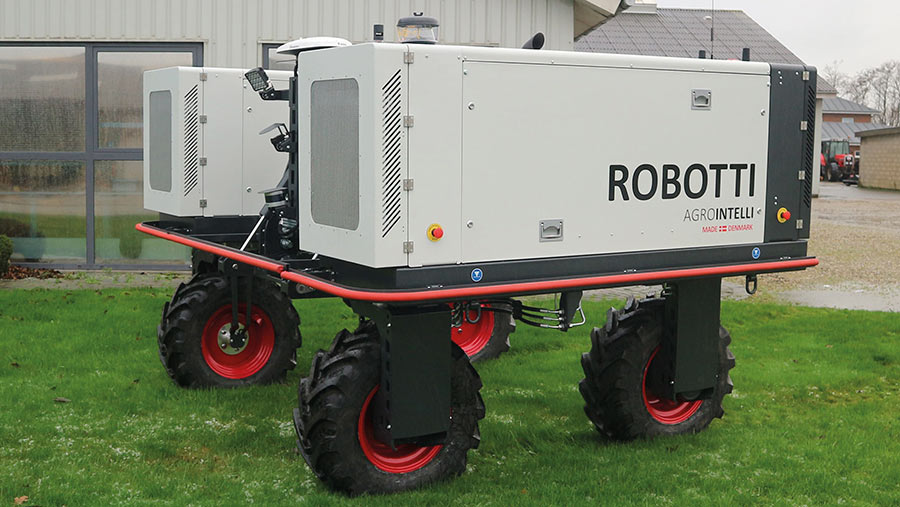
Robotti © Agrointelli
RoboCrop
This slightly scary-looking robotic dog was developed by the Manufacturing Technology Centre and Boston Dynamics.
The canine is programmed to analyse fruit crops using an advanced vision system to inspect quality, ripeness, disease and pests.
In theory, this means chemicals are only applied to individual crops when required, rather than blanket-treating entire fields or orchards.
Nicknamed Spot, the machine is able to go where most robots cannot, climbing steps and navigating difficult terrain.
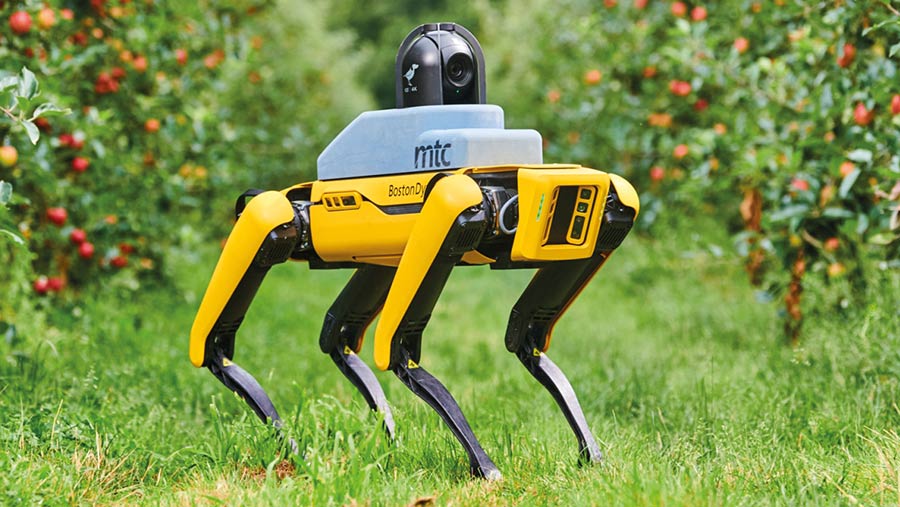
RoboCrop © ManufacturingTechnology Centre
Small Robot Company
A trio of intelligent and autonomous machines have been produced by the Salisbury-based Small Robot Company.
The so-called Tom, Dick and Harry robots each carry out individual functions, including mapping and digitising each individual plant in a field and using this information to complete non-chemical weeding, or planting combinable crops.
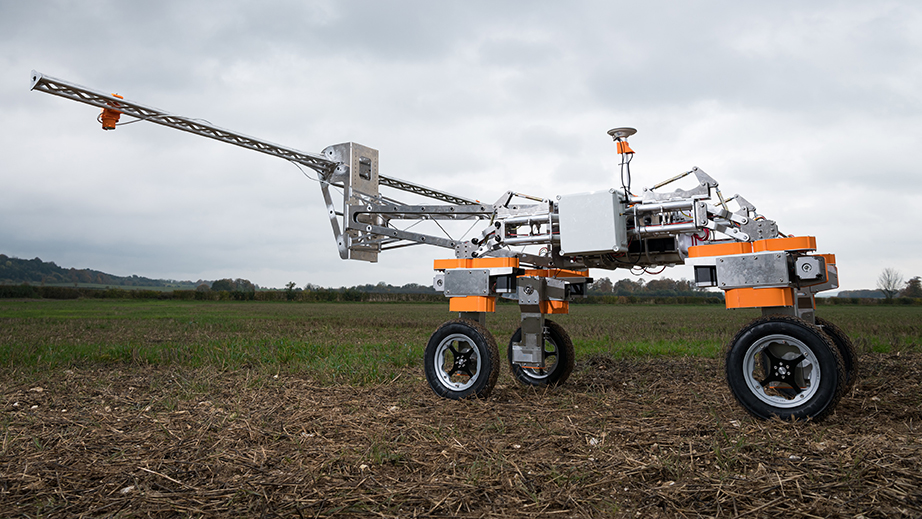
© The Small Robot Company

